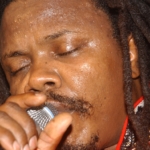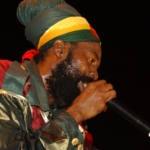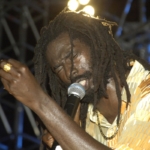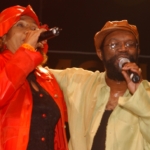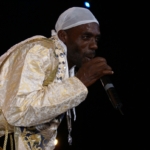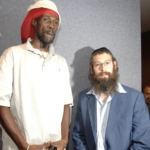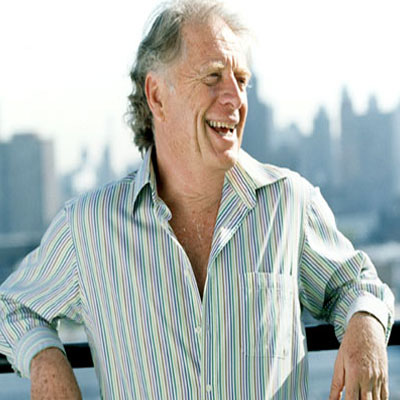
Island Records founder Chris Blackwell once said that Jamaican music’s influence is totally disproportionate to its size. Mr. Blackwell is one of the most important figures in Jamaican music and is largely responsible for exporting reggae to the world. He spent years spearheading the career of the late great Robert Nesta Marley O.M. (Bob Marley).
Blackwell was the key figure in securing for Bob Marley and the Wailers the mainstream exposure they needed. Through Island Records, they were featured on commercial radio, opened for major concerts and were mentioned in the same conversations as The O’Jays and The Rolling Stones.
Blackwell’s right of course. This island, with barely three million people standing all by itself in the middle of the sea, most certainly sent a ripple right down the back of music worldwide. I like to call Jamaica the loudest island in the world or, depending on what side of the culture we are talking about, the loudest revolution in the world. Either moniker fits.
So how did Jamaica get so loud? Literally it was those famous sound systems that punched the air with music back in the 1950s. Figuratively it was the convergence of Jamaican creativity and everyday survival.
If you look back to the 1950s, the island was crazed with music; and the louder the better. Sound system operators who were part promoter, part artist part businessman and always the showman, filled the island breezes with music. It was a highly competitive enterprise that was rife with all kinds of sneaky dealings, trade secrets and an occasion fight. For ordinary Jamaicans, it was the one thing they could all enjoy, and so loud that it was accessible for all to hear. These often open-air events were held where the ghetto people could come to enjoy a night of dancing and hear all the latest songs. Prince Buster, one of the most famous early system operators, said, “it’s the voice of the peoples.”
According to a wonderful book by Lloyd Bradley, This Is Reggae Music, The Story of Jamaica’s Music (Grove Press) the 1950s was divided by two groups of sound system operators. Early on, the biggest names included Tom the Great Sebastian, V Rocket, Lord Koos of the Universe, and Sir Knick the Champ. Extravagant names that reflect the showmanship that was necessary to stand out. These early genius pioneers didn’t know at the time that they started two trends that have become a permanent fixture in music. First, they were the earliest Dancehall DJ’s – the original rap artists. The second trend was the trend of renaming oneself to stand out. Today no reggae, hip-hop artist or DJ today goes by his real name. A quick glance at Billboard’s Top 100 for any year after 1970 will prove that. From Beenie Man to Jay Z, colorful names like those used by the early founders are part of cultures around the world.
The second half of the 1950’s was dominated by three sound system celebrities who went on to become giants in Jamaica’s musical culture. Their story is of true gut level creative genius. After all, they were inventing out of necessity. Throw in the intense competition to be the best system so as to attract the biggest crowd and you have the birth of modern Jamaican music.
The three giants who ended the decade are Clement “Sir Coxsone” Dodd’s Downbeat Systems, Duke Reid the Trojan, and Prince Busters Voice of the People. Most of the island was in a musical frenzy because of the not so friendly competition between these creative forces. These men pushed the limits of the law and blasted out far more homegrown music than their predecessors. They became the early producers of reggae. It was a uniting force that all Jamaicans knew was theirs to enjoy. It inspired and gave hope. More than at any other time in Jamaica’s musical history local influences made their way into music. All three became true giants in music, influencing almost every aspect of the flood of music that pours out of the island even today. It was the start of being less dependent on US and UK music.
Every early system operator, known and unknown, pushed the envelope. Partly for survival but mainly because it was something Jamaica called its own. An operator was a big man in his part of the ghetto. For the people it was the one uniting force that was accessible to all. I can only imagine what a lawn filled with thousands of dancing youths was like when they screamed, “lick it back,” meaning to play it again to Prince Buster or Sir Coxsone. It must have been loud!

